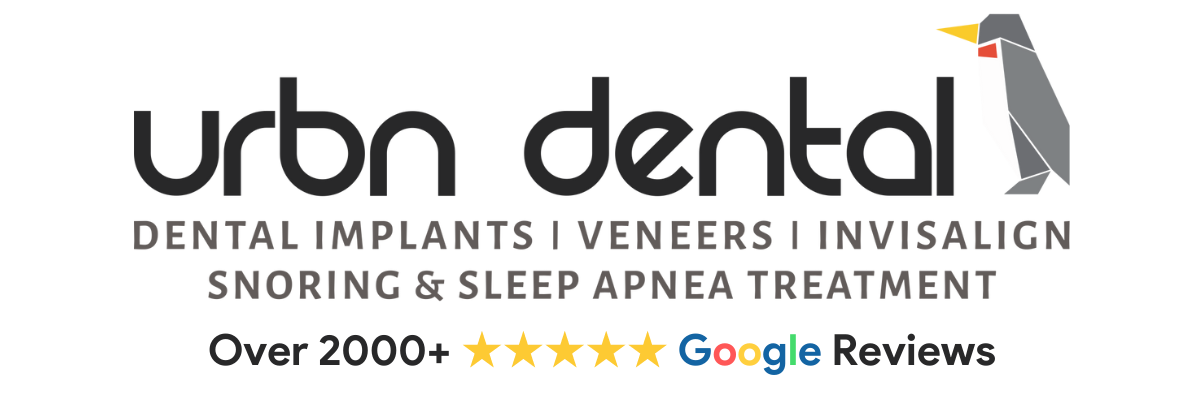In This Article
At URBN Dental, we understand the importance of routine dental cleanings in maintaining your oral health. In this article, we will take you through the entire process of a dental cleaning, from start to finish, so you know exactly what to expect during your visit to our dental offices in Houston.
Why Regular Teeth Cleanings Are Crucial
Before we delve into the nitty-gritty of a dental cleaning, let’s first understand why regular teeth cleanings are so essential. According to the American Dental Association (ADA), routine dental cleanings are vital for preventing dental issues such as tooth decay, gum disease, and more. By removing plaque and tartar buildup, which cannot be adequately addressed with regular brushing and flossing alone, we can help you maintain healthy teeth and gums. The ADA suggests that individuals should schedule dental cleanings once every 6 months, but some may need teeth cleaning more often, depending on their risk factors for cavities and gum disease.
Appointment Scheduling and Arrival
To begin your journey to a healthier smile, you’ll need to schedule an appointment at one of our convenient URBN Dental locations in Houston. Our offices are strategically situated in Uptown Houston, Midtown Houston, Montrose, City Center, Katy, East River, and Houston Heights, ensuring easy access for residents of various neighborhoods. When you arrive at our dental office, our friendly front desk staff will greet you and assist with any paperwork or insurance-related matters. We recommend arriving a few minutes early to ensure a smooth check-in process.
Preparation for Your Dental Cleaning
Once you’re checked in, our dental hygienist will guide you to the treatment area, where you’ll be comfortably seated in a dental chair. Before the actual cleaning begins, we may inquire about your dental history and any specific concerns you may have. Feel free to share any dental issues or sensitivities you’ve been experiencing; this information will help us tailor your cleaning to your needs.
The Dental Cleaning Process
- Initial Examination: Your dental hygienist will perform an initial examination of your teeth and gums. This examination helps identify any potential issues and allows us to determine the appropriate course of action.
- Plaque and Tartar Removal: One of the key steps in dental cleaning is the removal of plaque and tartar. Plaque is a sticky film of bacteria that forms on your teeth, and over time, it hardens into tartar. Using specialized tools, our hygienist will gently scrape away these deposits from your teeth’s surfaces and along the gum line.
- Dental Flossing: Flossing is an integral part of the cleaning process. Our hygienist will floss between your teeth and along the gum line to ensure that no plaque or food particles remain trapped in those hard-to-reach areas.
- Fluoride Treatment: After the thorough cleaning, a fluoride treatment may be administered to strengthen your teeth and provide added protection against cavities. This is a simple and painless procedure that involves applying a fluoride gel to your teeth.
- Deep Cleaning (if necessary): In some cases, especially if gum disease is present, you may require a deep dental cleaning, also known as root planing and scaling. This process involves cleaning below the gum line to remove plaque and tartar from tooth roots. Local anesthetics may be used to ensure your comfort during this procedure.
- Post-Cleaning Evaluation: Once the cleaning is complete, your dental hygienist will evaluate the health of your gums and overall oral hygiene. They may provide recommendations for at-home oral care and schedule your next appointment.
What to Expect During the Dental Cleaning
During the cleaning process, you may experience some sensations like pressure or minor discomfort, especially when plaque and tartar are being removed. Rest assured, our skilled dental hygienists are trained to perform the cleaning as gently as possible while ensuring thoroughness. If you have sensitive gums or a low pain tolerance, please don’t hesitate to communicate with us. We can make adjustments to ensure your comfort during the procedure. Additionally, if you ever feel anxious about dental cleanings, let us know, and we can discuss options for dental sedation to help you relax.
Aftercare and Maintenance
Following your dental cleaning, it’s crucial to maintain good oral hygiene at home. Brush your teeth at least twice a day using fluoride toothpaste, and make sure to floss daily. Regular dental check-ups and cleanings should be scheduled every six months to keep your smile in optimal health.
Professional Dental Cleanings FAQs
How often should I schedule a dental cleaning?
It is generally recommended to have a dental cleaning every six months. However, the frequency may vary depending on your individual oral health needs. Your dentist or dental hygienist will advise you on the best schedule for your specific case.
Does dental cleaning hurt?
Dental cleanings are typically not painful, but some individuals may experience minor discomfort or sensitivity, especially if they have sensitive teeth or gum disease. Our dental team will do their best to ensure your comfort during the procedure.
What is the difference between a regular dental cleaning and a deep dental cleaning?
A regular dental cleaning, also known as a prophylaxis, focuses on removing plaque and tartar from the surfaces of your teeth and along the gum line. A deep dental cleaning, on the other hand, involves cleaning below the gum line to address issues like gum disease. It may require local anesthesia for comfort.
Can I eat or drink after a dental cleaning?
You can eat and drink after a dental cleaning, but it’s recommended to wait a little while before consuming anything hot or cold. Your teeth may be slightly more sensitive immediately after the cleaning, so it’s best to avoid extreme temperatures for a short period.
What should I do if I experience bleeding gums after a dental cleaning?
Some mild bleeding or sensitivity of the gums after a dental cleaning is normal. However, if bleeding persists or is excessive, it’s essential to contact your dental office for further evaluation, as it may indicate an underlying issue that needs attention.
Is fluoride treatment necessary for adults during a dental cleaning?
Fluoride treatment can benefit both children and adults by strengthening tooth enamel and reducing the risk of cavities. However, the necessity of fluoride treatment may vary based on your oral health and history. Your dental professional will assess and recommend it as needed.
Can I request dental sedation for my dental cleaning if I’m anxious?
Yes, you can request dental sedation if you experience anxiety or discomfort during dental cleanings. Our dental team can discuss sedation options with you to help you relax and make the experience more comfortable.
How long does a dental cleaning appointment typically last?
A dental cleaning appointment usually takes about 30 minutes to an hour, depending on the extent of cleaning needed and any additional procedures or evaluations required.
Conclusion
Routine dental cleanings are a fundamental aspect of maintaining your oral health, and at URBN Dental, we are committed to providing you with a comfortable and thorough cleaning experience. By understanding what to expect during your dental cleaning, you can approach your appointment with confidence and look forward to a healthier, brighter smile. If you live in Uptown Houston, Midtown Houston, Montrose, City Center, Katy, East River, or Houston Heights, contact us today to schedule your next dental cleaning and take a proactive step towards optimal oral health. Your smile deserves the best care, and we’re here to provide it.

